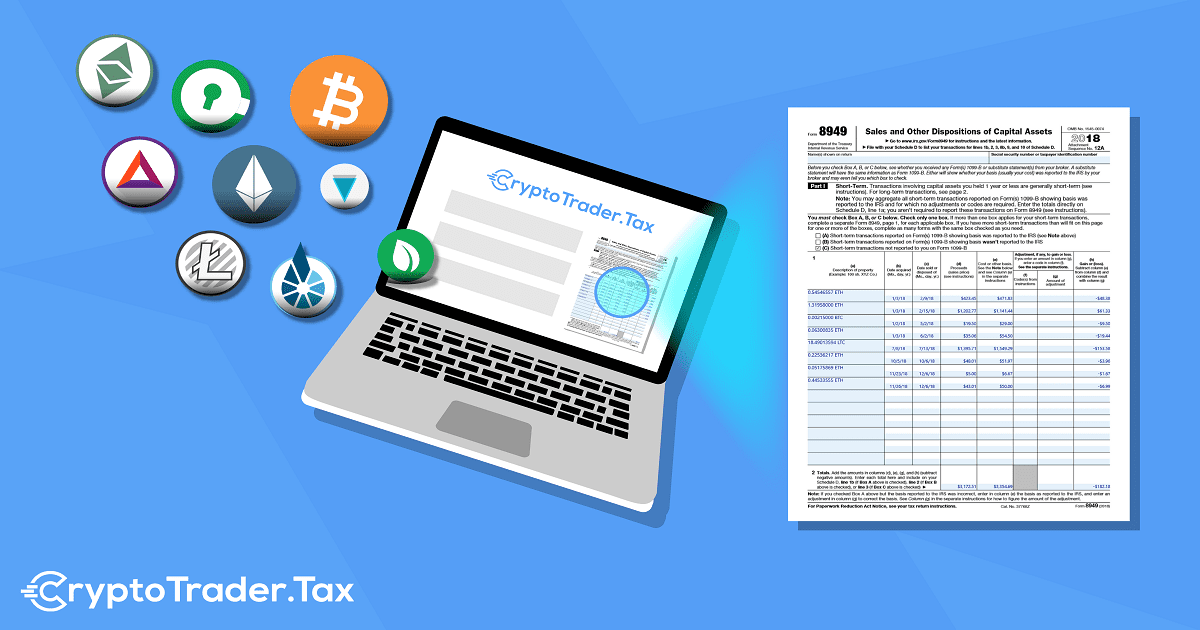David Kemmerer is the co-founder and CEO of CryptoTrader.Tax, one of the easiest and most reliable platforms to prepare your cryptocurrency taxes. David will be telling us more about Crypto Taxes in this interview.
What is CryptoTrader.Tax?
CryptoTrader.Tax is a software platform that automates the tax reporting process for people who invest, buy, sell, trade, or otherwise use cryptocurrencies. An easy way to think about it is like TurboTax for cryptocurrency.

How does CryptoTrader.Tax work and what are the major features of the platform?
CryptoTrader.Tax works by integrating with all major exchanges and cryptocurrency platforms. This allows users to sign up and automatically pull in all of their historical transactions from all of the platforms that they use to buy, sell, or trade cryptocurrencies. Once all of that data has been imported into the software, the user can generate their necessary tax reports with the click of a button.
What makes CryptoTrader.Tax special and how can it help crypto traders reduce their tax liability?
CryptoTrader.Tax is used by tens of thousands of crypto investors. It is packed full of helpful features that make it drastically stand out from the competition.
Features like the Tax Loss Harvesting module analyzes a user’s cryptocurrency holdings and detects where their greatest unrealized losses exist. This helps traders identify what assets they can strategically sell to reduce their overall tax liability.
CryptoTrader.Tax also partnered up with the TurboTax team and built a direct integration into the TurboTax platform. This allows users to import their cryptocurrency tax reports directly into TurboTax so that they can easily include it with their tax return for the year.
In addition, the CryptoTrader.Tax platform is extremely intuitive and easy to use. This is the biggest reason why investors flock to the platform. They don’t want to have to learn about all of the tax rules themselves. They want an easy to use platform that can automate the process for them. This is what CryptoTrader.Tax does best. We also staff an entire team of live customer support agents to help our customers along the way if they get stuck at all.
Where are we at in the crypto tax season and how can crypto traders prepare well for the coming season?
The official start to tax season is right around the corner, January 27th, which is the day that the IRS officially starts accepting e-Filed tax returns. Given that we are just a couple of weeks away from that date, right now is the best time to start preparing and pulling together all of your necessary tax documents.
The best way for crypto traders to prepare for the tax season is to first and foremost learn how cryptocurrency taxes work. From here, they should take the time to put together a list of all of the exchanges and platforms they have used in the past when transacting with cryptocurrencies. Once you’ve put a list like that together, it will be easy to import everything into cryptocurrency tax software to generate your tax reports.
Could you enlighten us on why cryptocurrency exchanges can’t provide users with accurate tax reports?
Because users are constantly transferring crypto into and out of exchanges, the exchange has no way of knowing how, when, where, or at what cost basis you originally acquired your cryptocurrencies. It only sees that they appear in your account.
The second you transfer crypto into or out of an exchange, that exchange loses the ability to give you an accurate report detailing the cost basis and fair market value of your cryptocurrencies, both of which are mandatory components for tax reporting.
This creates a fundamental problem in the space that is very different from traditional stock brokers or stock trading platforms; namely, that exchanges don’t have the ability to give capital gains and losses reports to their users.
What are the core elements of how governments treat cryptocurrencies from a tax perspective. How is the IRS for example looking at crypto?
According to official IRS guidance, Bitcoin and other cryptocurrencies should be treated as property for tax purposes — not as currency. This is true for all cryptocurrencies such as Ethereum, Litecoin, XRP, etc.
This means that crypto must be treated like owning other forms of property such as stocks, gold, or real-estate. Just like you would with trading stocks then, you are required to report your capital gains and losses from your cryptocurrency trades on your taxes. Failing to do so is considered tax fraud in the eyes of the IRS.
Could you tell us about your team and customer support?
We staff a full team of customer success agents during the busy tax season. One of our biggest goals at CryptoTrader.Tax is to always be there for our customers. Having a world class customer support team helps us do that, and it’s a big reason why so many of our customers wind up using a platform like our – they simply have someone to turn to and answer questions.
How Safe is CryptoTrader.Tax, would you like to talk about your legal and security measures?
CryptoTrader.Tax uses SSL encryption on every single web page to ensure your data stays private. We also do not share any data with any government agencies. Your data is yours, and we have a world class team of technology experts who protect it.
Do you have more information for our readers?
Yes, in addition to being a platform directly for crypto investors themselves, we also have a full Tax Professional Suite built for accountants, CPA’s, and tax pros who need a software solution to help them service their own clients. You can learn more about how our Tax Professional Suite works here.



































